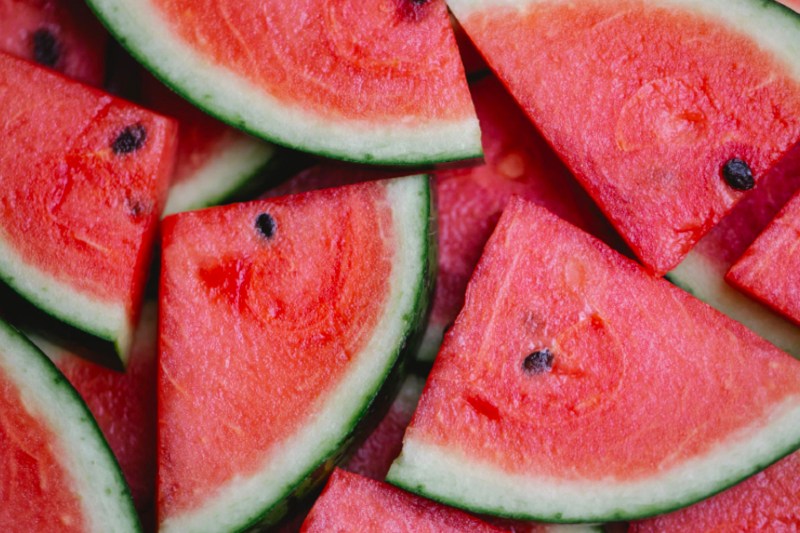
Warmer weather offers some of the best times of the year to get outside and check out that fresh air, especially when it comes to fitness. Outdoor workouts, hiking in the mountains, swimming in the lakes, and camping under the stars are all ways to move your body and enjoy the weather. For that post-movement refreshment, there are seasonal fitness foods abound, and none more so than watermelon. The benefits of watermelon are great reasons to add this fruit to your post-workout routine.
Whether you’re an avid workout junkie or just the occasional gym-goer, post-workout nutrition is crucial for all things recovery, including helping muscles grow and improve athletic performance. While investing money each month on supplements or vitamins is great for most, adding in things like watermelon is a great way to shake up your post-workout routine. Let’s cut this melon’s secrets open and see why it’s a super fruit you should pay attention to.
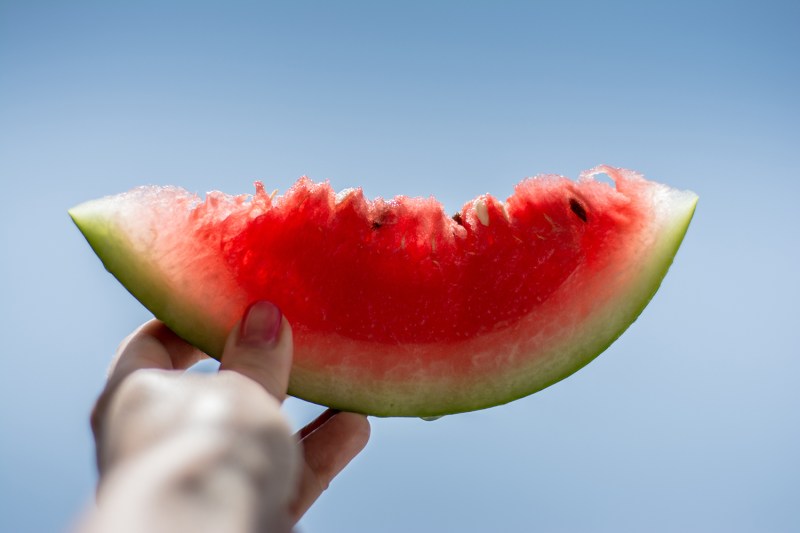
Watermelon nutritional info highlights
One of the main reasons why watermelon is such a fan hit is that it tastes so darn delicious, practically melting in your mouth. Aside from the great taste, it is good in terms of its nutritional profile. And clocking in at 84 calories per serving, it’s pretty easy to make it fit in your daily macros.
The numbers to know
- Calories: 84
- Potassium: 314 mg
- Carbs: 1 g
- Sugars: 17 g
- Vitamin C: 34% of your DV (daily value)
- Iron: 3% DV
- Vitamin B6: 5% DV
- Magnesium: 7% DV
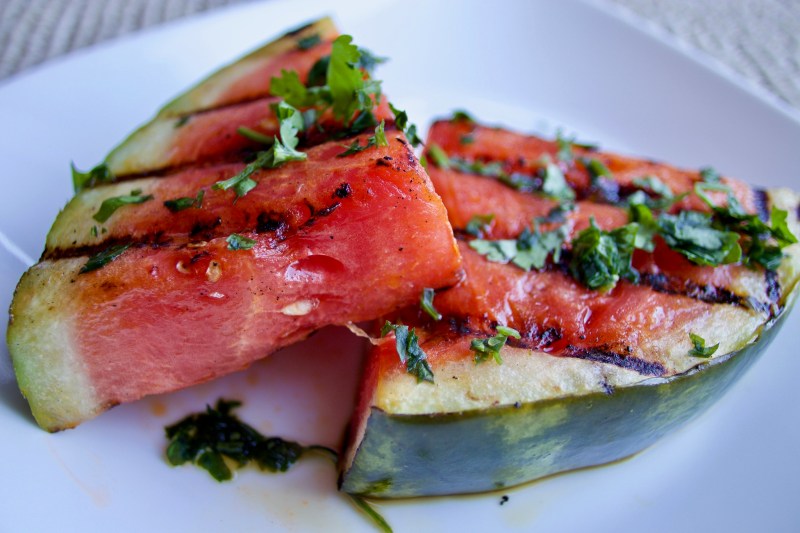
Perks and drawbacks of eating watermelon after a workout
One of the main reasons why proper nutrition is crucial for workout recovery is the amount of sweat and electrolytes you lose during each session. One of the things you want to do is replenish what you lose. A great place to start is by having a serving of watermelon post-workout.
It’s an electrolyte and hydration powerhouse
For starters, a serving of watermelon is a great option for post-workout because it is almost 92% water. That is the perfect hydration boost you need after a tough sweat session, as you lose water in your body through sweating.
Secondly, it is an electrolyte powerhouse. Again, through sweating, you lose water and electrolytes. Electrolytes, which have an electrical charge, are responsible for helping regulate chemical processes and balance your bodily fluid levels, both in and out of the cells. An imbalance has serious ramifications, so replacing them post-workout is crucial.
With its great boost of magnesium, potassium, and calcium, the electrolytes in watermelon help stave off muscle cramps that occur during intense workouts and will help boost immunity when you are under the weather.
Cons of eating watermelon for recovery
Just like all things in life, too much of a good thing can be bad, and the same could be said for watermelon. A lot of times, people mindlessly eat slices and pieces of watermelon while they are cutting it up. Next thing you know, you are 2.5 times over the actual serving.
While some carbs and sugars are good for recovery, too much is damaging as it is then stored as fat instead of being used as fuel. An overindulgence of anything with high sugars leads to feelings of sluggishness and tiredness. Watch your serving size.
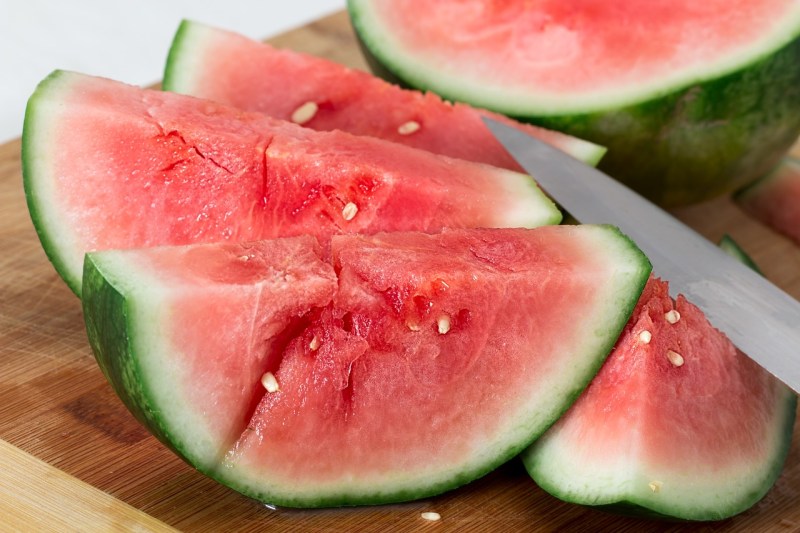
The positive side effects of this watery fruit
Amino acid addition
Going hand in hand with hydration recovery are the muscle recovery properties found in watermelon’s nutritional amino acid profile. When most think of muscle recovery, they think of protein drinks and maybe some carbs. But amino acids are the building blocks of protein and watermelon has one that is quite beneficial in recovery — L-citrulline.
L-citrulline is an amino acid that is responsible for plenty of health benefits like regulating a healthy immune system as well as maintaining heart health. It helps reduce high heart rates in athletes, post-workout. Not only that, but it has been shown to reduce muscle soreness during post-workout recovery.
Antioxidant boost
One of the negative side effects of working out is the inflammatory response that happens as a result of muscle breakdown. One of the best ways to combat inflammation is through the use of antioxidants, especially those from food sources.
Watermelon is a great choice in that regard, as it is a good source for a few different antioxidants such as lycopene, lutein, and zeaxanthin, all of which help fight off inflammation. It also fights oxidative stress and those free radicals that damage things like lipids, proteins, and nucleic acids. These antioxidants have also been found to be beneficial in combating illnesses like heart disease, strokes, and various types of cancers.
Added carb bonus
Another bonus of having watermelon as a recovery food is the added effect of post-workout carbs. The type of training you do will ultimately affect which energy system you use during workouts. That being said, if anaerobic training, your body will often start off using glucose as the energy source until it is depleted. Post-workout carb replacement is great for reviving those levels.
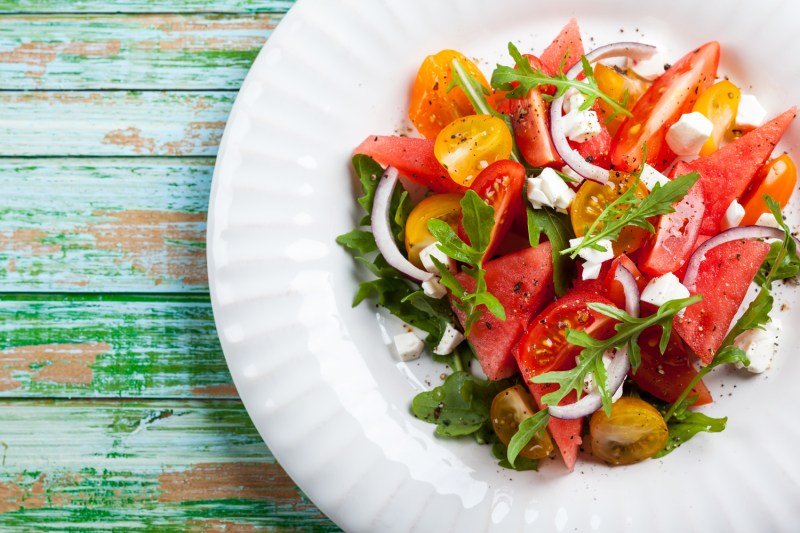
Why you should eat watermelon, even if you didn’t workout
Don’t only stock up on the watermelon if you plan on working out. It’s one of those super fruits that you should have in your diet’s lineup no matter what because it can improve digestion. Watermelon helps with digestion by reducing that bloated feeling that makes you not want to do anything. You don’t want to work out when you feel too full anyway, but watermelon will boost the good bacteria in your gut to make digestion easier and faster.
Watermelon can also calm inflammation. CRP is an inflammatory marker that could be reduced by a steady consumption of watermelon. It’s also been known to lower your risk of developing rheumatoid arthritis, since watermelon contains carotenoid beta-cryptoxanthin.
This super fruit can improve blood flow and keep arteries healthy. Watermelon has the good amino acid citrulline, which produces another good amino acid arginine, which increases blood flow. Proper blood flow is good for your arteries, so you get a double win there.
In general, and in moderation, watermelon is a great post-workout option. With its great benefits from hydration to electrolyte replenishment to amino acid and antioxidant boosting, it is an ideal way to recover and raise your athletic performance. It’s also just a good, tasty way to improve your health anyway, even if you don’t work out. Every time you run to the store, make sure watermelon on your list so you don’t miss out on the benefits.



